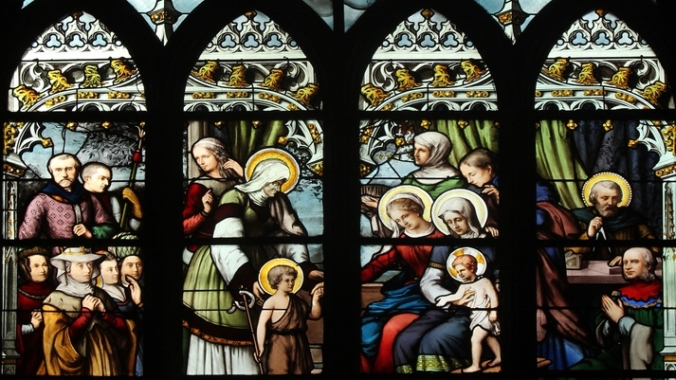Religious Freedom Since the First Amendment and Early State Constitutions – Guest Essayist: Marc Clauson
LISTEN ON SOUNDCLOUD:
Meaning of, and how early state constitutions allowed religious establishments regardless of the First Amendment
The first states, as we know, were originally colonies of Great Britain. Even before that, some were not founded as British colonies, but independent endeavors. Only later, after the “period of salutary neglect,” did they come under direct governance of the Crown. From the beginning then, the American colonies, though they did have their own charters and compacts (early constitutions), also could and did have established religions—though many were also tolerant of other religious sects.
Several things must be noted regarding the early colonial and state constitutions in relation to the United States Constitution. First the colonial and later state constitutions did allow for a single established church. Some of these simply followed the Anglican Church model and others adopted a different church model. But their respective constitutions did not pose any legal barriers to this. Second, the United States Constitution in the First Amendment explicitly stated that “Congress shall make no law respecting an establishment of religion, or prohibiting the free exercise thereof….” In the early years of the Republic that clause was applied only to the national government, leaving the states free to establish their own official churches. Many did so. But even those that did, tended to allow for different sects of Christianity—and even different non-Christian religions. Massachusetts was the last state to abolish its established Christianity in 1833, before the First Amendment was applied by the United States Supreme Court to the states as well as the national government.
Throughout the “establishment period” (until 1833) the states allowed dissenting churches even though they mandated official churches supported by tax money. It was not until 1947 in the Everson v. Board of Education, that the Supreme Court began to apply the Establishment Clause to the states. At that point any established churches would be unconstitutional in the states. Nevertheless, freedom of religion—toleration in effect—was already the custom of the states, and all had by then abolished established churches.
Marc A. Clauson is Professor of History, Law and Political Economy and Professor in Honors at Cedarville University. Marc holds a PhD from the University of the Orange Free State, SA, Intellectual History and Polity); JD (West Virginia University College of Law, Jurisprudence); MA, ThM (Liberty University, New Testament Studies and Church History); MA (Marshall University, Political Science); BS (Marshall University, Physics); and PhD work (West Virginia University, Economic Theory).
Click Here for the next essay.
Click Here for the previous essay.
Click Here to have the NEWEST essay in this study emailed to your inbox every day!
Click Here to view the schedule of topics in our 90 Day Study on Congress.




Join the discussion! Post your comments below.
Your feedback and insights are welcome.Feel free to contribute!